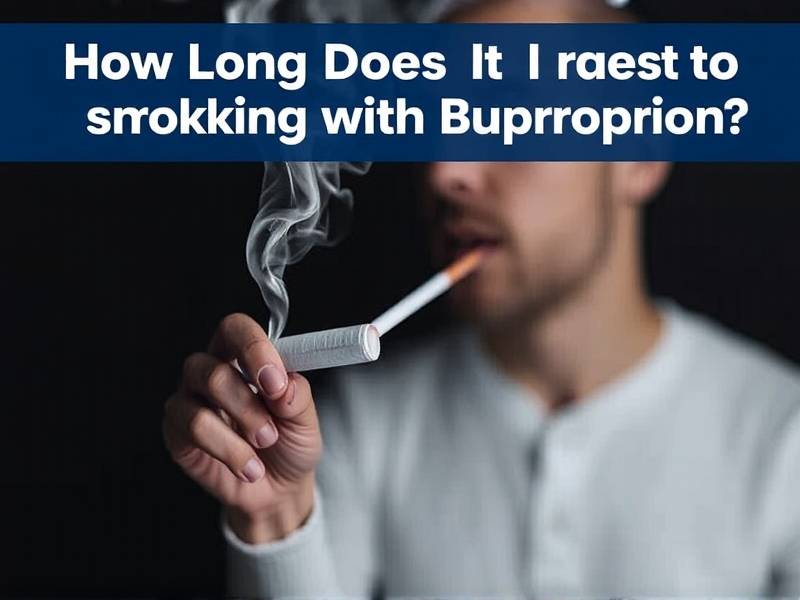How Long Does It Take to Quit Smoking with Bupropion?
Understanding the Timeline of Smoking Cessation with Bupropion
Introduction: Quitting smoking is a significant step towards improving one's health, and many individuals seek effective aids to help them through this challenging process. Bupropion, also known as Wellbutrin, is a medication often prescribed to assist in smoking cessation. But how long does it take to quit smoking with bupropion? Let's delve into this topic and provide insights into the journey of quitting smoking with the help of this medication.

What is Bupropion?

Bupropion is an antidepressant that also has the potential to reduce nicotine cravings and withdrawal symptoms. It works by affecting certain neurotransmitters in the brain, which can help manage the physical and psychological aspects of addiction.
The Process of Quitting Smoking with Bupropion
-
Prescription and Consultation Before starting bupropion, it's crucial to consult a healthcare professional. They will assess your health history and determine if bupropion is suitable for you.
-
Starting the Medication Once prescribed, you'll begin taking bupropion as directed by your healthcare provider. The typical dosage may vary depending on individual needs.
-
Tapering Off Nicotine It's important to gradually reduce your nicotine intake while on bupropion. This can be achieved by cutting down on cigarettes or using other nicotine replacement therapies under medical supervision.
-
Monitoring Progress The duration for which you'll be on bupropion may vary based on individual response and effectiveness. Regular follow-ups with your healthcare provider are essential to monitor progress and adjust the treatment plan if necessary.
How Long Does It Take?
The time it takes to quit smoking with bupropion can differ from person to person. Here are some factors that can influence this timeline:
- Individual Differences: Each person's body reacts differently to medications, so the effectiveness and duration of bupropion may vary.
- Nicotine Dependence Level: Individuals who are highly dependent on nicotine might require a longer period of treatment.
- Compliance: Adhering strictly to the prescribed regimen increases the chances of successful cessation.
- Support Systems: Having a strong support system, whether it's family, friends, or support groups, can significantly aid in quitting smoking.
On average, some individuals may experience results within a few weeks of starting bupropion, while others might need several months before they successfully quit smoking.
Conclusion
Bupropion can be an effective tool in your journey towards quitting smoking. However, there's no one-size-fits-all timeline for success. Patience, adherence to treatment plans, and support from healthcare professionals are key factors in overcoming tobacco addiction with bupropion. Remember that every step towards quitting is a step towards better health – take it one day at a time.
